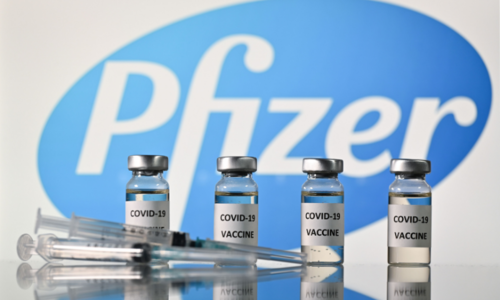UNITED NATIONS: The World Health Organisation (WHO) has approved the Pfizer/BioNTech vaccine for emergency use, paving the way for it to be distributed to countries in need.
It is the first vaccine to be added to the UN organisations’ Emergency Use Listing (EUL).
Regulatory experts convened by WHO from around the world and its own teams reviewed the data on the Pfizer/BioNTech vaccine and found on Thursday that it met WHO’s must-have criteria for safety and efficacy with its benefits offsetting any potential risks.
“This is a very positive step towards ensuring global access to Covid-19 vaccines,” Dr Mariangela Simao, WHO Assistant Director General for Access to Medicines and Health Products, said in a statement.
“But I want to emphasise the need for an even greater global effort to achieve enough vaccine supply to meet the needs of priority populations everywhere.”
The move opens the door for countries to expedite their own regulatory approval processes to import and administer the vaccine.
It also enables Unicef and the Pan-American Health Organisation (PAHO) to procure the vaccine for distribution to countries in need.
At the same time, WHO said it is encouraging more developers to come forward for review and assessment to satisfy the critical supply for all countries globally to stem the pandemic.
“WHO and our partners are working night and day to evaluate other vaccines that have reached safety and efficacy standards,” Dr Simao said.
“The vaccine is also under policy review. Drawing from WHO’s Strategic Advisory Group of Experts on Immunisation (SAGE) population prioritisation recommendations for Covid-19 vaccines, which were issued in September, the group will convene on Jan 5 to formulate vaccine specific policies and recommendations.”
WHO is working with regional partners to advise national health authorities about the two-dose shot and its anticipated benefits.
The World Health Organisation, the GAVI Vaccine Alliance and the Coalition for Epidemic Preparedness Innovations are spearheading a global effort called COVAX to secure the equitable distribution of vaccines to all countries and not just to wealthy nations.
Meanwhile, German firm BioNTech said on Friday it was racing to ramp up production of its Covid-19 jab in Europe, to fill the “gap” left by the lack of other approved vaccines. The vaccine developed by BioNTech and its US partner Pfizer was the first to be approved in the European Union in late December. Countries including Britain, Canada and the United States okayed the Pfizer/BioNTech vaccine earlier and have since also green-lighted jabs by US firm Moderna or Oxford/AstraZeneca, leaving the EU’s inoculation drive lagging behind.
Published in Dawn, January 2nd, 2021















































